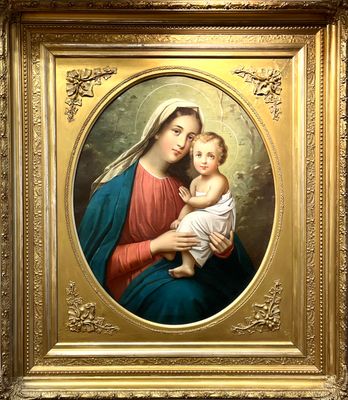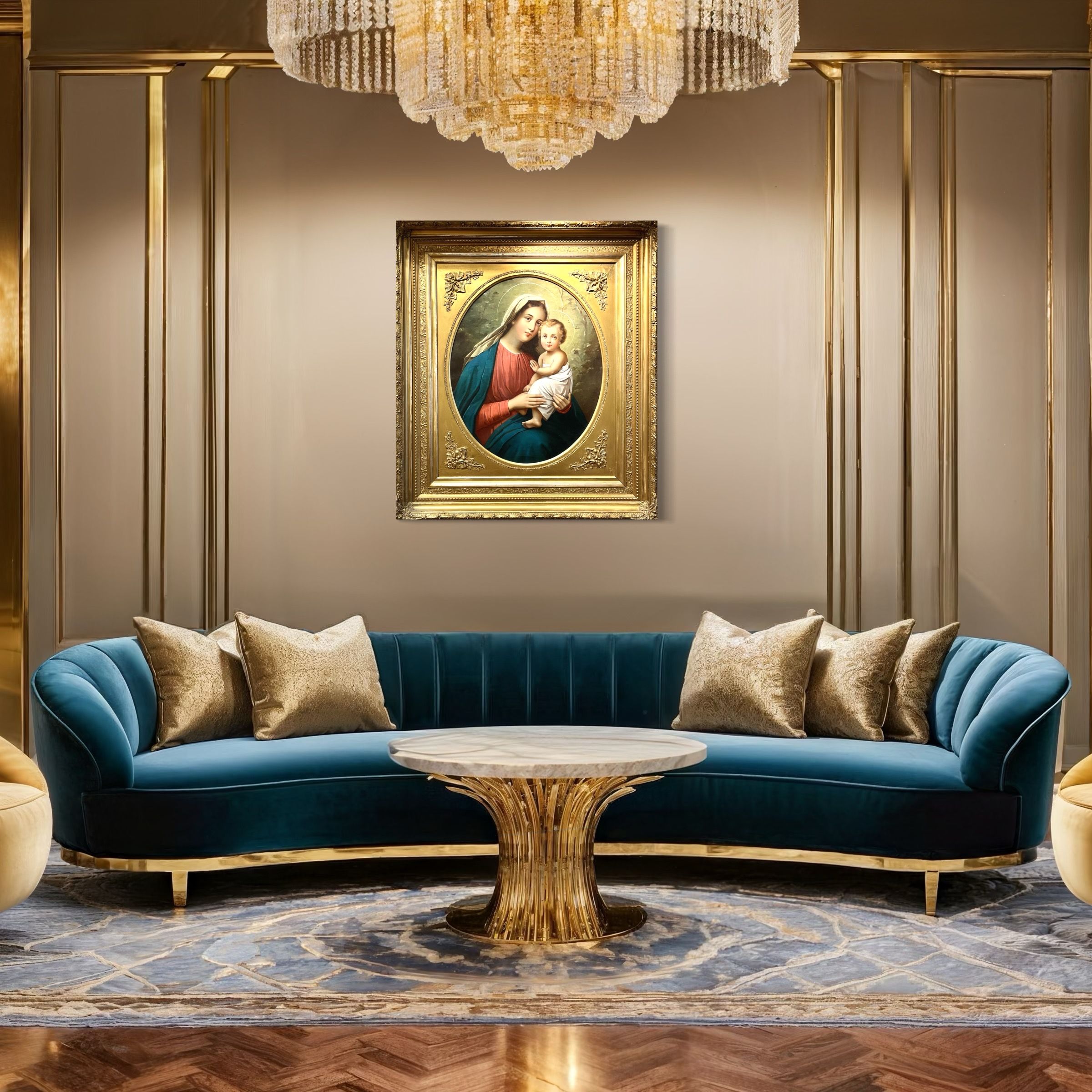00405

Artist: After Raphael (1483 -1520) Italian
Title: Madonna and Child (circa 1875)
Medium: Oil on Canvas
Size: 38.5 x 33.5”
This religious genre painting is in the style of the famed Renaissance painter and architect, Raphael, produced around 1875. All the classical aspects from the Renaissance influences can be seen from the innocent portraiture of the Madonna and child to the gold leaf haloes. The framing is sympathetic to the style.
Raphael was born Raffaello Sanzio on April 6, 1483, in Urbino, Italy, the son of Giovanni Santi, a painter who taught him all the techniques until his death in 1494 when Raphael took over his workshop. Raphael became Perugino's apprentice in 1504. Living in Florence from 1504 to 1507, he began painting a series of "Madonnas." In Rome from 1509 to 1511, he painted the Stanza della Segnatura ("Room of the Signatura") frescoes located in the Palace of the Vatican. He later painted another fresco cycle for the Vatican, in the Stanza d'Eliodoro ("Room of Heliodorus"). In 1514, Pope Julius II hired Raphael as his chief architect. Around the same time, he completed his last work in his series of the "Madonnas," an oil painting called the Sistine Madonna. Raphael died in Rome on April 6, 1520.
Raphael was not afraid to portray his subjects in an emotionally realistic way, and this made him very popular. Raphael is considered to be one of the greatest religious painters in the Christian tradition of all time. His depictions of the crucifixion of Christ are considered masterpieces. However, it is his depictions of the Madonna, or Mary the mother of Jesus Christ that has been particularly admired. Raphael’s portrayal of the Madonna changed the course of religious art in the Renaissance, and its influence extends to this day.
